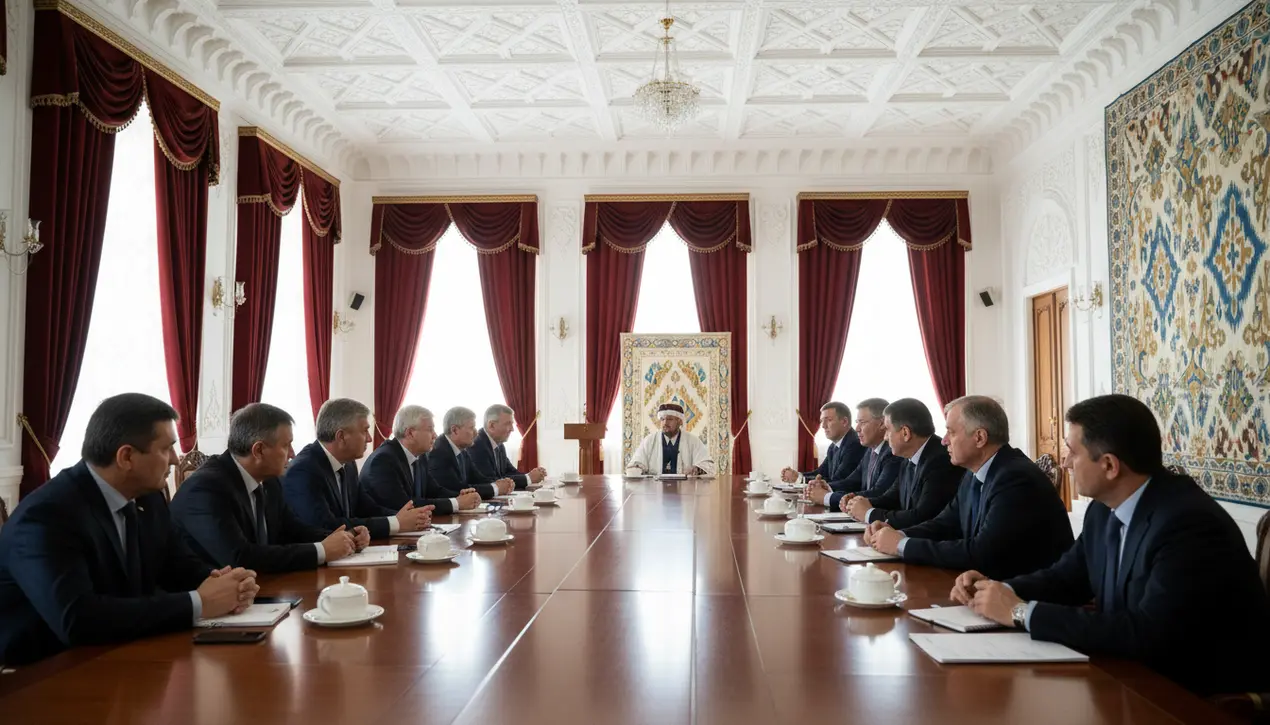
PoliticsdiplomacyBilateral Relations
Central Asian and South Caucasus Leaders Strengthen Ties at Summit.
RO
Robert Hayes
2 hours ago7 min read
In a move echoing the grand diplomatic assemblies of a bygone era, the leaders of Central Asia, flanked by the pivotal South Caucasus state of Azerbaijan, convened in Tashkent with a singular, ambitious purpose: to forge a new paradigm of regional integration. This summit was not merely a photo opportunity; it was a strategic gambit, a deliberate pivot from the historical shadows of external influence towards a self-determined future built on stronger economic and security architecture.The very location, Uzbekistan, a nation once at the heart of the Silk Road, served as a potent symbol of this reawakening, hearkening back to a time when this region was a nexus of global commerce and cultural exchange, rather than a geopolitical chessboard. The agenda was comprehensive, pushing beyond the customary memoranda of understanding to discuss the establishment of new, permanent institutions capable of managing shared resources, streamlining cross-border trade, and presenting a unified front on the world stage.One can draw a parallel to the post-war European Coal and Steel Community, a humble beginning that ultimately sowed the seeds for the European Union; the leaders in Tashkent seem to be attempting a similar foundational act, recognizing that collective economic resilience is the bedrock of lasting sovereignty. The inclusion of Azerbaijan, a nation boasting significant energy reserves and a strategic position on the Caspian, adds a crucial and complex dimension, effectively bridging the Central Asian and South Caucasus spheres and creating a contiguous bloc with substantial leverage in energy geopolitics, particularly with Europe seeking to diversify its energy sources away from Russia.On the security front, the discussions undoubtedly grappled with the persistent threat of instability emanating from Afghanistan, the specter of transnational terrorism, and the nagging tensions over water rights—a issue as old as the civilizations in the region but now supercharged by climate change. This collective security initiative represents a pragmatic understanding that no single nation can insulate itself from these cross-border challenges.However, the path forward is fraught with the same historical rivalries and bilateral disputes that have often stymied deeper cooperation in the past. The true test will be whether these nascent institutions can withstand the pressures of competing national interests, much as the early European project had to navigate the historical enmity between France and Germany.For global powers like Russia and China, which have long considered this region their strategic backyard, this assertive move towards self-reliant integration will be watched with intense scrutiny, potentially recalibrating their own diplomatic and economic approaches. The Tashkent summit, therefore, may well be remembered not for its immediate outcomes, but as a definitive statement of intent—a Churchillian 'beginning of the end' of the region's passive role in international affairs and the start of a new, more confident chapter where it seeks to write its own destiny.
#Central Asia
#South Caucasus
#Tashkent Summit
#Regional Integration
#Economic Ties
#Security Cooperation
#featured
Stay Informed. Act Smarter.
Get weekly highlights, major headlines, and expert insights — then put your knowledge to work in our live prediction markets.
Related News
Comments
Loading comments...
© 2025 Outpoll Service LTD. All rights reserved.